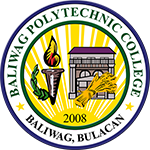PROGRAM DESCRIPTION
The degree program described herein shall be called Bachelor of Science in Accountancy (BSA).
NATURE OF THE FIELD OF STUDY
This is the program that provides general accounting education to students wanting to pursue a professional career in Accountancy in general and in Public Accounting in particular. Further, this is the program that complies with the latest competency framework for professional accountants issued by the International Federation of Accountants (IFAC) through their International Education Standards. Thus, this qualifies the graduate of this program to take assessments leading to certifications in Accountancy given by the Professional Regulatory Commission – Board of Accountancy (PRC-BOA) and other global professional Accountancy organizations.
As a field of study, Accountancy is a profession that involves providing assurance and audit services for statutory financial reporting, tax-related services, management advisory services partnering in management decision-making, devising planning and performance and control systems, and providing expertise in financial reporting and control to assist various stakeholders in making decisions.
Accountants should pursue lifelong learning, and continuous professional development. They must be objective, ethical and consider the public interest. They should help colleagues to overcome bias by rooting organizational decision-making and implementation in an evidence base, and by providing empirically tested, objective solutions wherever possible.
Accountancy professionals must pay due regard to the primacy of the organization’s customers and the range of relationships that enable a business to operate. They must also understand the global macro-economic environment to assess information based on its relevance to their organization.
A combination of accounting and financial expertise, business understanding and analytical skills and appropriate business experience means that accountants are practical and grounded in operational reality.
PROGRAM GOALS (Program Goal will be the expected outcomes of the graduates within 3 to 5 years of graduation that will be included in the assessment)
The primary goal of accounting education is to produce competent and ethical professional accountants capable of making a positive contribution over their lifetimes to the profession and society in which they work. In the face of increasing changes that they will meet later as professional accountants, it is essential that students develop and maintain an attitude of learning to learn, to maintain their competence later as professional accountants.
The BSA program should provide a foundation of professional knowledge, professional skills, and professional values, ethics and attitudes that enable them to continue to learn and adapt to change throughout their professional lives. These capabilities will enable professional accountants to identify problems, know where to find this knowledge and know how to apply it in an ethical manner to achieve appropriate solutions. The balance of these elements may vary but what is required is to develop the knowledge base, strong skills and ethical values in order to produce competent professional accountants with appropriate values, ethics and attitudes.
The strategic relevance of Accountancy is represented by its ability to support the various stakeholders, e.g., regulatory bodies, potential investors, creditors, management and employees, in taking strategic and operating decisions through the presentation and analysis of financial data and information arising from business transactions.
SPECIFIC PROFESSIONS/CAREERS/OCCUPATIONS FOR GRADUATES
The field of accounting offers stimulating and challenging work that is constantly evolving. The BSA program seeks to prepare the student for Accountancy career as well as in allied fields in business and economics.
PROGRAM OUTCOMES
A graduate of BS in Accountancy should be able to:
- resolve business issues and problems, with a global and strategic perspective using knowledge and technical proficiency in the areas of financial accounting and reporting, cost accounting and management, accounting and control, taxation, and accounting information systems;
- conduct accountancy research through independent studies of relevant literature and appropriate use of accounting theory and methodologies;
- employ technology as a business tool in capturing financial and non-financial information, generating reports and making decisions;
- apply knowledge and skills to successfully respond to various types of assessments; and (including professional licensure and certifications); and
- confidently maintain a commitment to good corporate citizenship, social responsibility and ethical practice in performing functions as an accountant
Course Features
- Lecture 0
- Quiz 0
- Duration 50 hours
- Skill level All levels
- Language English
- Students 0
- Assessments Yes






